My Mother is the First Leader I Met
Posted in: Days of Observance, peopleofanera, Society & culture
Celebrating women on the front lines on Mother’s Day in the Arab world
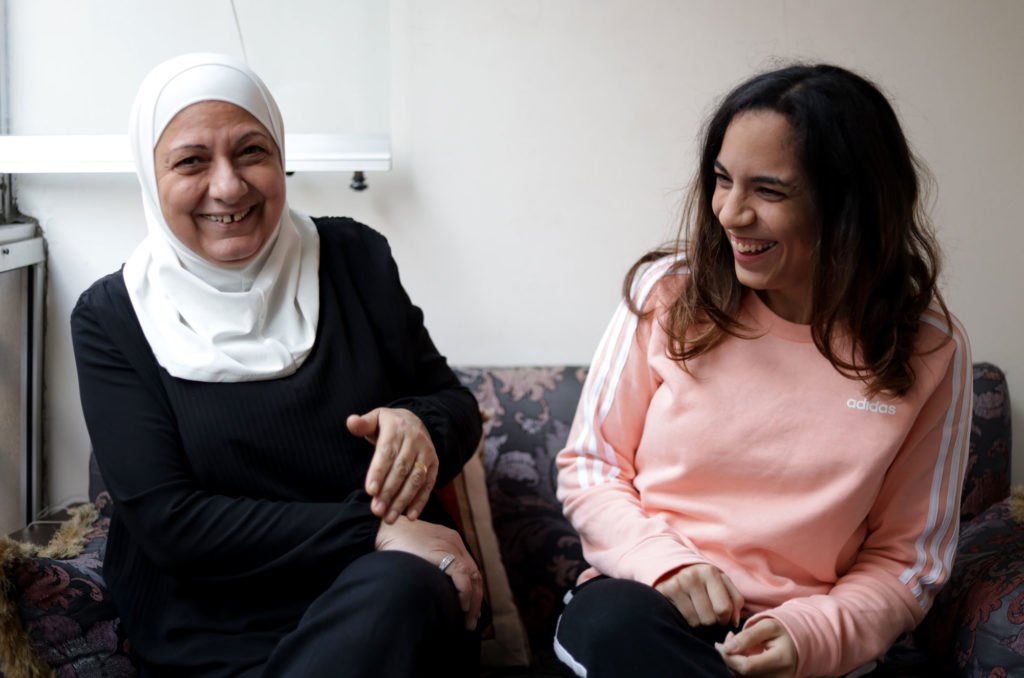

Most countries in the Arab world celebrate Mother’s Day on March 21. Acknowledging the vital place of women in society is more important than ever this year. Women are the backbone of society — they are caregivers, educators, peacemakers and front-line workers — and they play an essential role in creating sustainable socioeconomic development. For the past year, women on the front lines have dedicated their time and energy to helping people and protecting against the invisible attacker, the infamous COVID-19.
Yara Shanouha is part of Anera’s family. She is a pharmacist with our medical donations team in Lebanon. Her mother, Olfat Muhammad Al-Osta, is the director of the pharmacy at one of our health partners in Lebanon, the American University of Beirut Medical Center (AUBMC). Olfat has been a pharmacist for 40 years.
Our conversation with Yara
Tell us a little about yourself.
I’m 30 years old. I joined Anera back in August after the Beirut blast to support the medical donations team. I’m a biologist first, and a pharmacist second. I like running and watching movies and just spreading positive vibes.
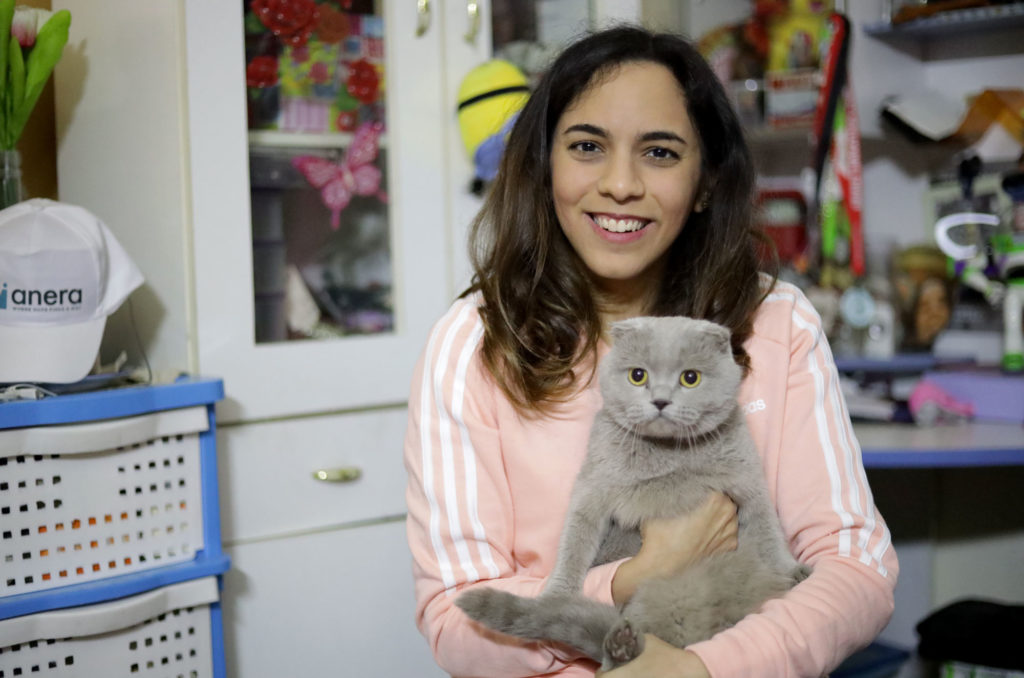

Why did you pursue pharmacy as a career?
To be honest, medicine was my first choice. I always wanted to help people through healthcare. My mother convinced me that the pharmacy profession is just as rewarding, and she was right.
What have you learned from your work at Anera? Tell us more about your experience.
It’s been so rewarding and beautiful! I never knew that I could love a job that much. When I got the job and told my friends about it, their immediate response was that it suits my personality. The medical donations program is providing incredible support to hospitals and healthcare centers across Lebanon. Mostly I learned that teamwork is the key to success.
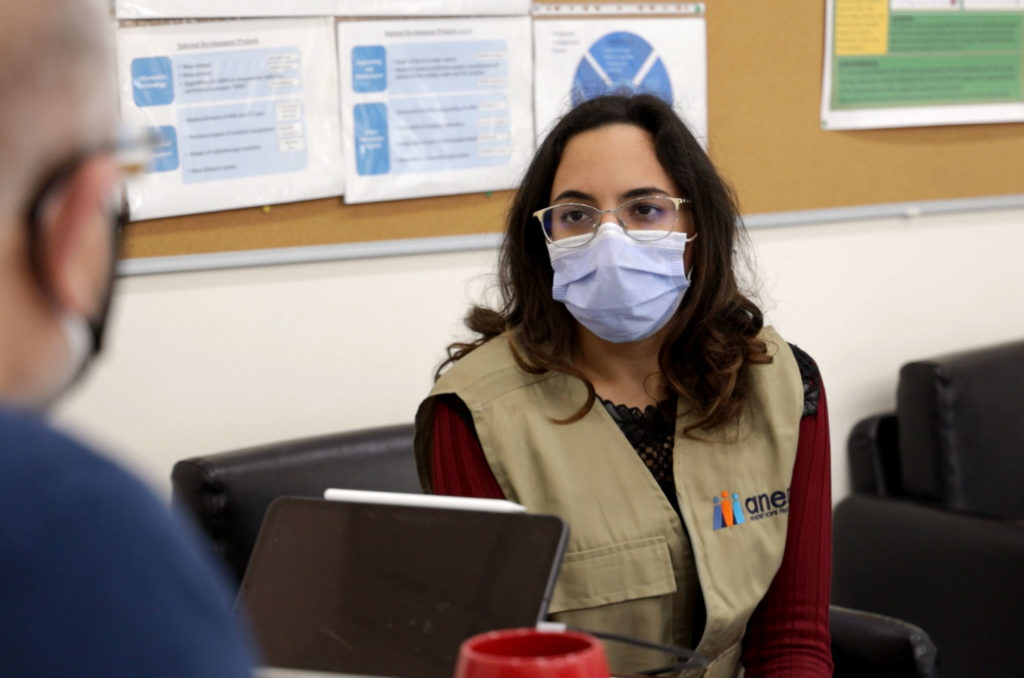

What are some of the obstacles that women face in your field?
The main hurdle now is one that faces the whole pharmacy field: the current economic crisis and the shortage of medicines. Pharmacists have to deal with frustrated patients who are ill and can’t get their medications. One challenge for women in particular is that we often need to work long hours, so it’s a struggle to maintain a work-life balance while also keeping up to date with all the latest clinical guidelines. Pharmacy is a continuously developing field so we always need to stay informed.
What do you hope to achieve in the coming five years?
On a personal level, one of my main bucket-list items is to become a mom and start a family of my own. That’s what I’d like to achieve in the next five years. Career-wise, I’d like to keep acquiring new skills and growing in my career because there’s so much to learn in the world of NGOs. For fun, I’d also like to keep improving my running pace. And I’m trying to watch all of the top 250 movies on IMDB.
What is one piece of advice you would give to younger girls ?
Believe in yourself, follow your dreams and always do good.
Tell us about your mom and growing up with her.
Anyone who knows my mom knows what a workaholic she is. On days when she worked late nights, I would hate her work for taking her away from me. Saturdays were my favorite because I would come home from school knowing she was there. My mom is a supermom and I still can’t believe how she found the time to direct a pharmacy with 100 employees, cook, clean, take care of her own parents and take care of us. When I had to do homework, she always had me doing extra exercises and even studying the next day’s chapter.
My mom loves to learn. She’s continuously learning — it’s an addiction really. Growing up, I always saw her studying something. She has a master’s degree in clinical pharmacy, a doctor of pharmacy, and three board certifications. Her hands are always full with some book on leadership or some clinical article. Physicians call her a walking encyclopedia. No one hesitates to ask her anything because they know she has her answers ready before she even hears their questions.
Was she your inspiration?
She most definitely was! She’s still an inspiration to me and to many other women as well. Pharmacists, in particular.
Who are your female role models?
My mom and aunts, and the amazing lady that brought them into this world, my grandmother, may she rest in peace. My grandmother was one strong, independent woman who brought the best women into this world. Despite the war, and the bad economic situation she helped my grandfather in supporting their family of seven with her tailoring business.
She used to make the most wonderful dresses. She was an incredible and dedicated wife and mother. She was the motivation to allow her daughters to have a university education in a traditional conservative society where girls were not allowed to mingle with the opposite sex.
Our conversation with Olfat
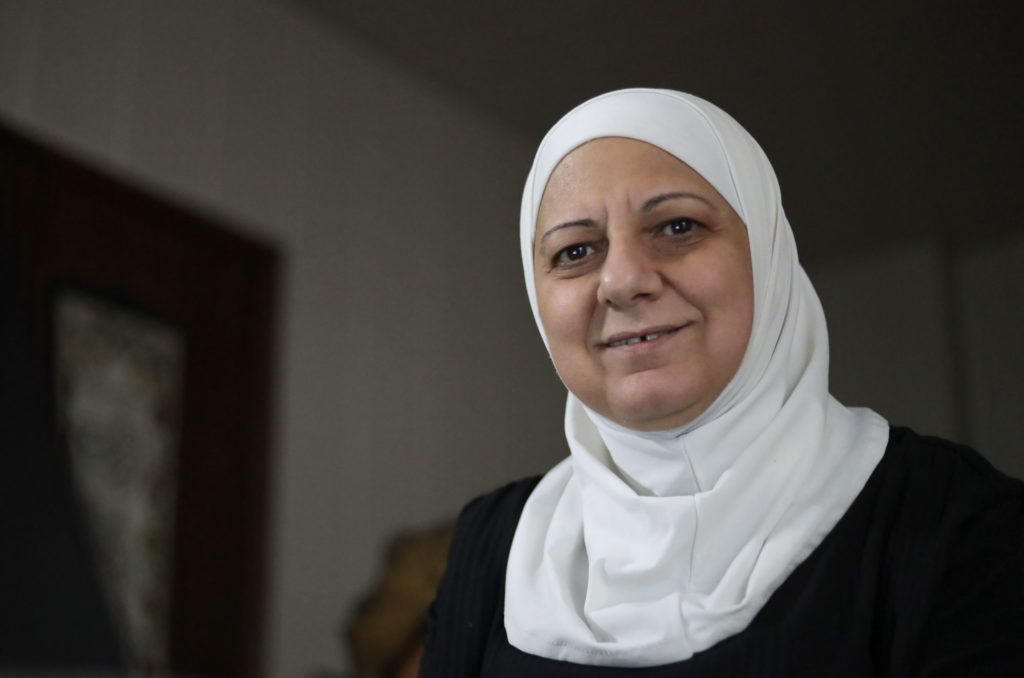

Tell us a little about yourself.
I am currently the pharmacy director at AUBMC. After my graduation from pharmacy college my dream was to have my own pharmacy. But the economic crisis and the civil war back in 1982 led me into hospital pharmacy, where I found my passion to advance pharmacy practice and improve patient safety. I realized then that my educational journey had just started.
To acquire the knowledge and skills I needed, I completed my Pharm.D. and passed three board certifications and earned a leadership certificate to prepare myself for a managerial position. At the same time, I was raising my two kids.
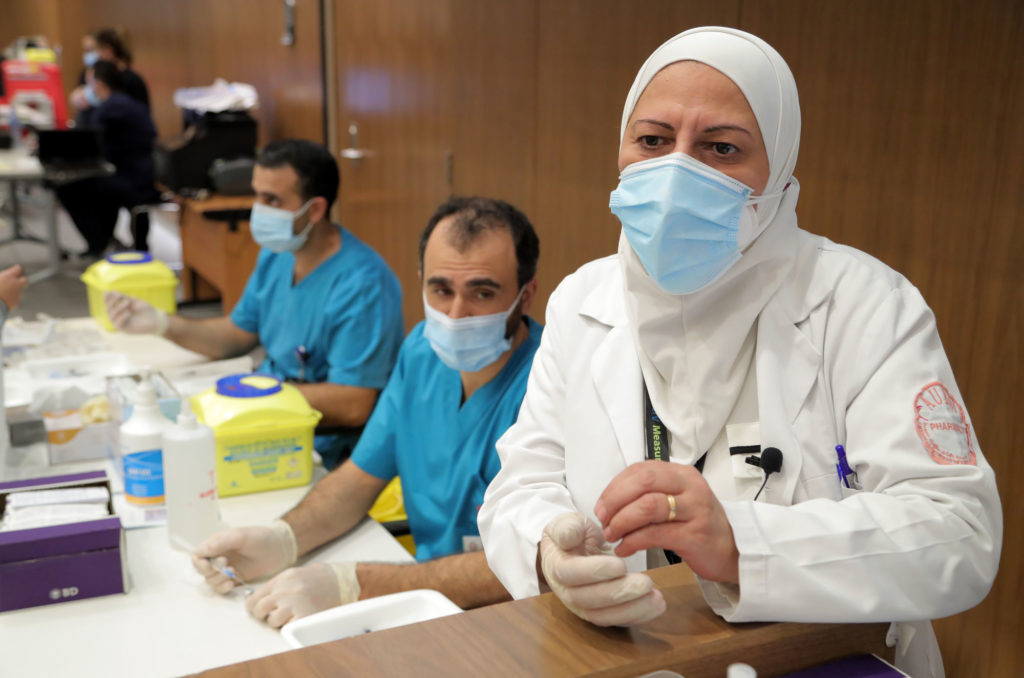

Why did you pursue pharmacy as a career?
I wanted to build relationships directly with patients and, as I mentioned earlier, my dream was to have my own pharmacy and teach my kids when they reached school age.
What have you learned from your years in the field?
Looking back at my 40-year career, I am satisfied with the evolution of the pharmacy practice. We were able to translate strategies into practical goals. For example, we updated the IV admixture units for compound drugs into a ready-to-use form for the nurses. And we implemented a new practice model, moving the pharmacists from the basement into the patient care areas, where they could interact with the physicians and nurses. We also upgraded our systems to use automated dispensing and electronic health records (Epic). We obtained Joint Commission International accreditation and created a residency program. I was lucky to have supportive executive leaders and motivated team members to overcome all the barriers and achieve these things.
What are some of the challenges that women face in your field?
The major obstacle I faced is juggling my busy, demanding professional life and my family life. My job never ends at 5 p.m. I had to work extra hours at home, reading and preparing for reports.
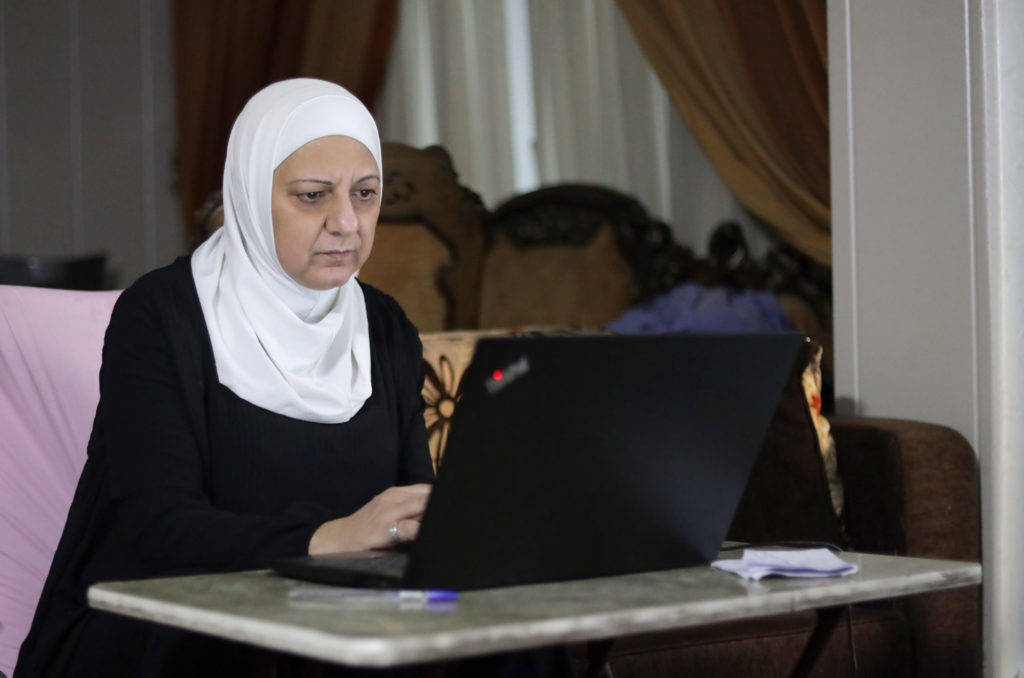

What do you hope to achieve in the coming five years?
I want to make a plan for my volunteering and consulting activities once I retire, as well as enjoying spiritual activities.
What is one advice you would give to younger girls?
Follow your dreams, challenge yourself and have passion for what you are doing.
How do you manage between work and home?
The weekend is for house chores and preparing meals. My daughter is helping me, but I have to admit that without the support of my husband and family, I wouldn’t be able to tolerate all the stress.
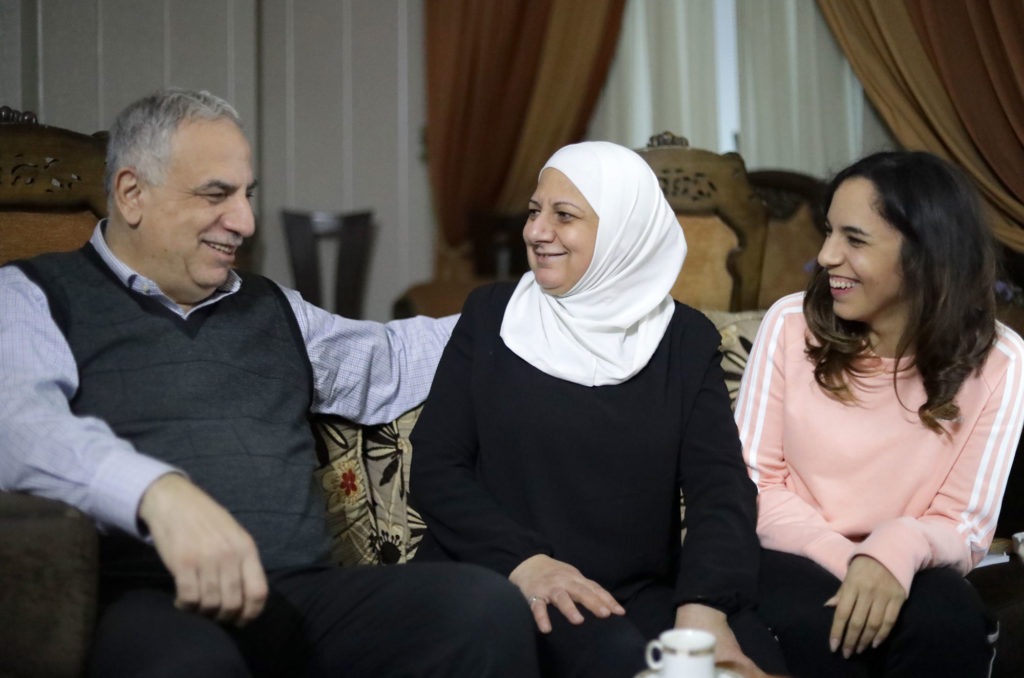

How did COVID-19 affect your life as a professional in the medical field?
It’s really hard to talk only about the impact of the pandemic in the medical field in Lebanon without addressing the multiple catastrophic crises, from the economic collapse and devaluation of the Lebanese pound to the most devastating blast at the port in August 2020. As a result, the shift to ‘crisis-mode strategy’ was inevitable. Shortages of essential drugs and supplies are the major challenges we are currently facing in hospitals. Working in under-resourced environments and dealing with the ever-increasing threat of risk of infection during this stressful period forces leaders to go the extra mile and support the staff by being visible and supportive in order to avoid burn-out.
At the personal level as a consequence of the lockdown, the only benefit I got from this pandemic is spending more time with my family. We were able to develop shared interests and bond over new activities like meal time and movie night.
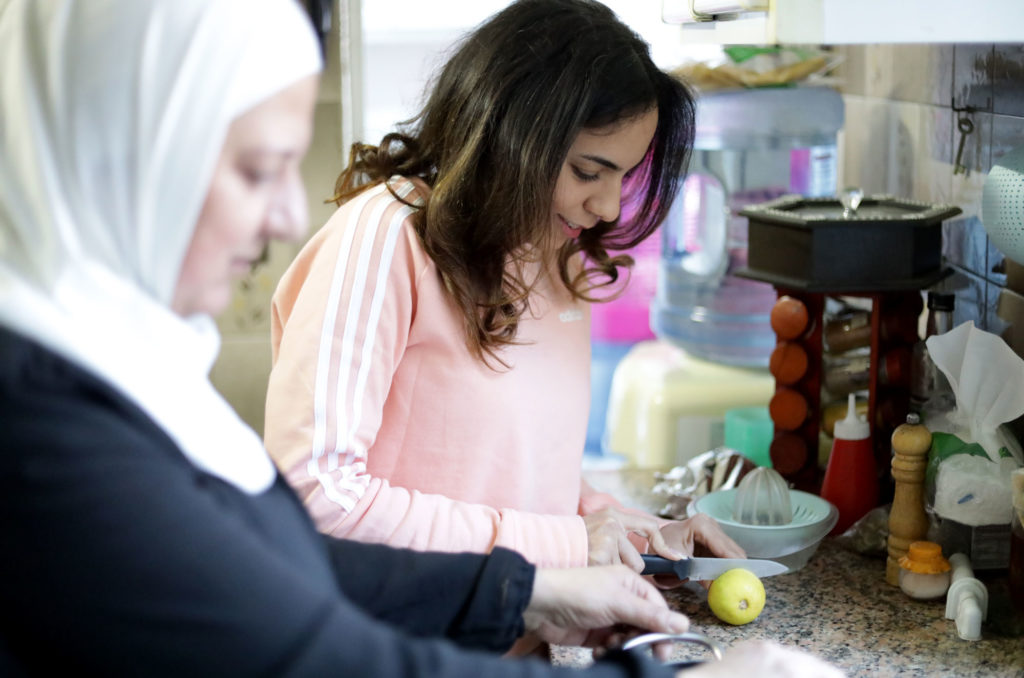

Who are your female role models?
My mother is the first leader I met. She is my role model with her outstanding communication skills, values and perseverance.
During my career I’ve been really fortunate to have great mentors who helped and motivated me to cultivate my leadership skills — mentors like Dr. Georgette Yazbeck, with whom I worked for 17 years as operations manager, and Dr. Petra Khoury, with her visionary leadership.
OUR BLOG
Related
In Gaza, systematic bombardment of civilian housing and infrastructure has created a crisis of shelter that is endangering over a million.
The undersigned members of the Association of International Development Agencies (AIDA) urgently call upon the international community to intervene and halt settler attacks targeting Palestinian civilians and protect Palestinian communities near illegal settlements. The International NGO Community urges international actors…
